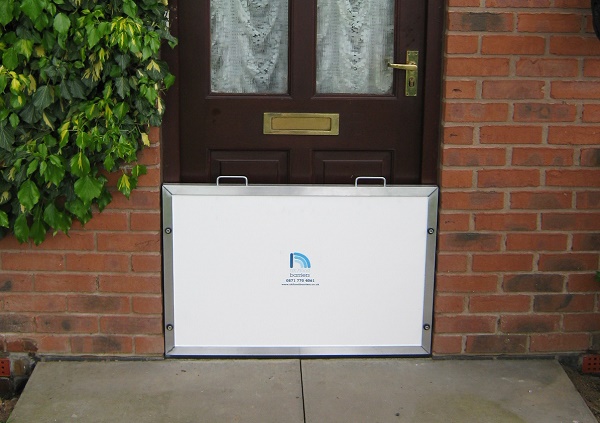2. Adapting buildings: why is it important to act?
Some people may not be aware of what can be done to avoid being affected by extreme events like flooding and heatwaves and how their own behaviour influences how they are affected.

Flood guard fitted over a front door ('property level protection'). Credit: UK Flood Barriers
On this page:
Raising awareness and understanding
Improving public knowledge about solutions can encourage individuals to protect their homes. Such information is also important to provide alongside messages about the potential for climate impacts such as floods and heatwaves to avoid people feeling powerless to act.
Not all people and communities are equally able to apply and use property protection measures. In order to avoid making inequalities worse, it may be necessary to identify people who are likely to have difficulties acting on an individual basis so that their needs can be met in other ways. This also needs to consider why people are unwilling to adapt their behaviour and explore ways that concerns can be addressed.
Duties and responsibilities
Local authorities and their partners in health and social care have statutory duties and a range of other responsibilities to engage communities on issues associated with preparing for climate impacts and extreme events. Duties also cover the need to avoid disadvantaging vulnerable groups, the need to ensure effective service delivery and the need to meet the requirements of being a social landlord. More information about some of the relevant legislation can be found here, including:
- The Health and Social Care Act (2012)
- The National Planning Policy Framework 2012 (NPPF)
- The Localism Act (2011)
- The Equality Act 2010

Built by:

© 2014 - Climate Just
Contact us
